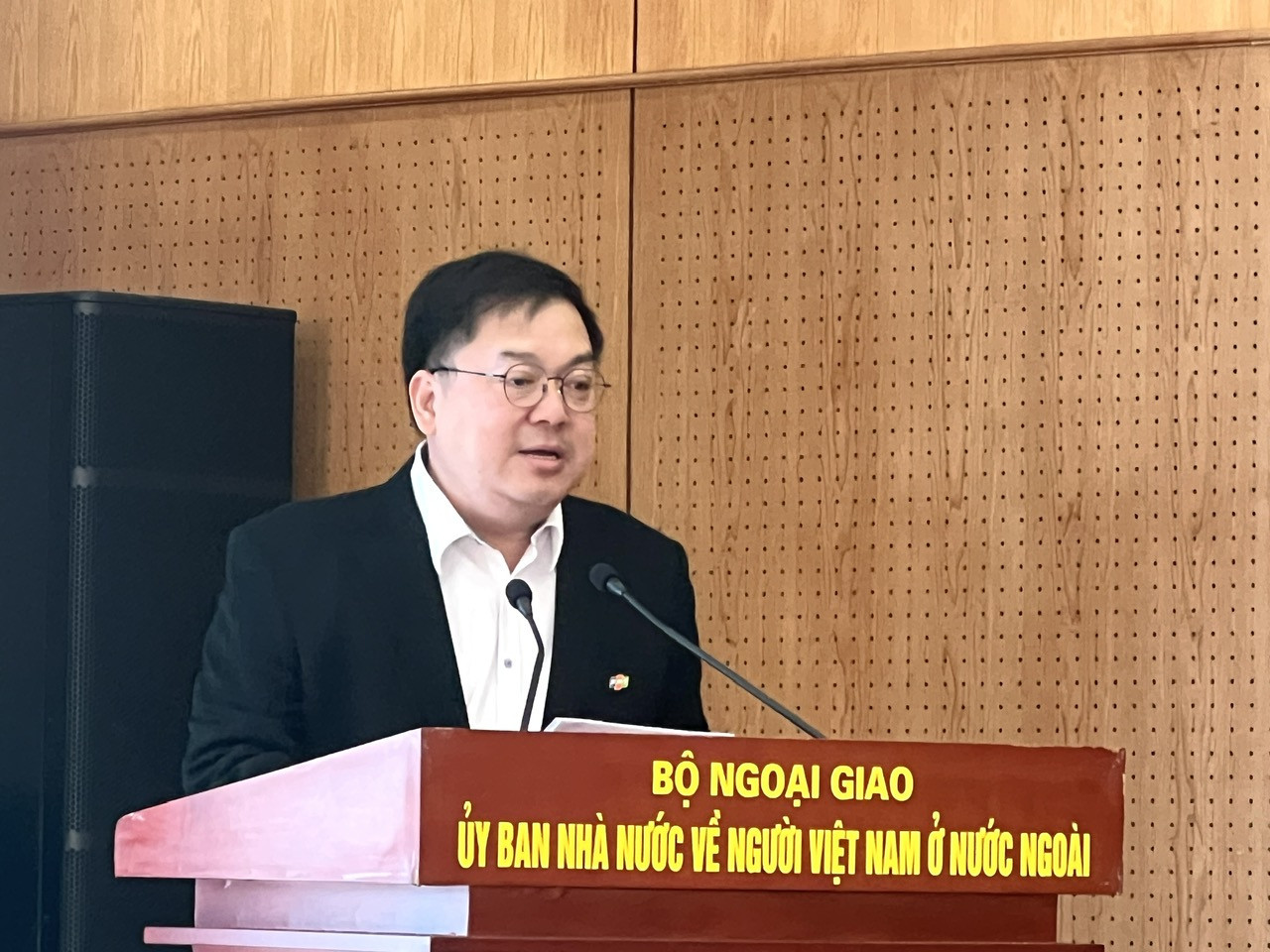
“FPT Group has decided to cooperate with Nvidia and invest $5 billion to build an AI Factory, as well as make heavy investment in chips manufacturing and semiconductors. We need to know information about Vietnamese experts in AI and chips all over the world, as well as the way to contact them,” Hoang Nam Tien, vice president of FPT University, said at a workshop on connecting the global startup mentor network held on December 23.
“FPT has a large network of offices in 85 cities all over the globe, but it still finds it difficult to connect such experts,” he admitted.
Affirming that FPT is willing to offer attractive treatment to lure talents, Tien said FPT well understands the role of the talents. After FPT’s leaders could contact Phuong Tram, former CIO of Dupont, the world’s leading chemicals group, they have found it easier to contact other large corporations.
In early December, at University of Tokyo, Tien was surprised and took pride when meeting Vietnamese professors and doctorate holders who head large projects in Japan, including those related to superconductors for quantum computers, and replacement of silicon in semiconductors. Such resources still have not been effectively exploited by the government, ministries, branches and enterprises.
When Tien asked them if they planned to return to Vietnam to settle down, the experts said they could accept the modest pay in Vietnam, but they still hesitated to return to Vietnam because the environment is unsuitable for them.
What the Viet Kieu intellectuals want, according to Tien, is to work on problems which are interesting and difficult enough for them to solve to contribute to the country development.
Tien said that the talented experts, many of whom have foreign citizenship, remember that they are Vietnamese born. They did not ask Tien what they could expect to receive if they return to Vietnam to work. They said they wanted to be allowed to solve difficult questions, rather than just visiting some places and delivering speeches.
FPT has made every effort to access foreign large research institutes, economic groups and large corporations and invite Viet Kieu intellectuals to cooperate. However, this is not enough, according to Tien. There should be a state organization that does this work. And the State Committee for Overseas Vietnamese could be the organization.
Database about Viet Kieu intellectuals, talents
David Nguyen, Chair of the Business Council of the Vietnam-Australia Innovation Network, one of the experts participating in the Global Startup Mentor Network for many years, said that despite different political viewpoints, overseas Vietnamese are always ready to give support.
In October 2024, the innovation network helped a delegation from Da Nang pay a working visit to Australian universities and research institutes in semiconductors and AI. In November, a group of Australian professors came to Da Nang to organize a workshop on transferring technology to startups in the city.
“International mentors can give support by using resources of the countries they live in to facilitate Vietnamese startups in the countries or in Vietnam to go abroad,” Nguyen said, adding that Vietnamese startups should strengthen connections with Vietnamese startups in other markets to better develop technologies and solutions.
Pham Hong Quat, Director of the Department of Market Development and Science & Technology Enterprises, noted that not many Vietnamese startups have connected with overseas Vietnamese, while Chinese, Indians, Singaporeans and South Koreans can do this very well.
Quat went on to say that while kieu hoi (overseas remittance) to Vietnam has increased steadily, investment in startups remains modest. Many Viet Kieu still don’t understand the situation in Vietnam well and don’t know what Vietnam needs.
He has visited several education and training establishments in Germany where many Vietnamese AI majoring professors were working. They said they wanted to contribute to the country's development, and they wanted detailed addresses and specific projects, not just general issues.
Nguyen Manh Dong, deputy chair of the State Committee for Overseas Vietnamese, said there are about 6 million overseas Vietnamese who live and work in 130 countries, and the people are getting younger. There are 600,000 Vietnamese people living and working in Japan.
In the past, most Vietnamese businesses overseas operated in the service sector, but nowadays, there are also digital technology firms and green tech companies.
Binh Minh